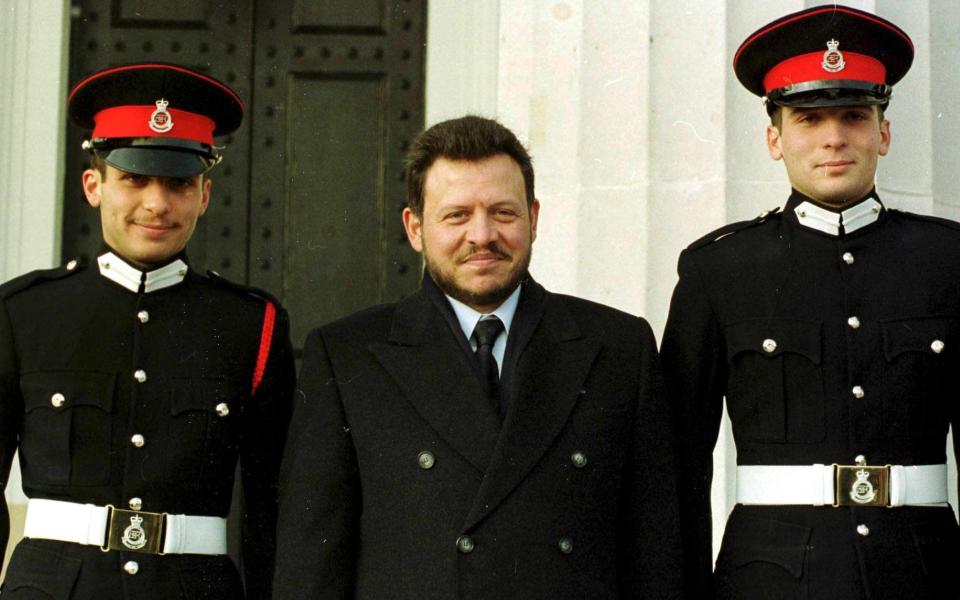Jordan prince vows to defy orders not to communicate with public after coup accusation

A former Jordanian crown prince put under house arrest at the weekend for allegedly plotting to destabilise the country, has hit back at military chiefs, saying he "will not obey" orders that silence him and restrict his movement.
"I don't want to make moves and escalate now, but of course I'm not going to obey when they say you can't go out, you can't tweet, you can't communicate with people, you're only allowed to see your family," the former prince Hamzah said in an audio recording posted to Twitter on Sunday. "When the head of the joint chiefs of staff comes and tells you this... I think it's a bit unacceptable," he added.
The Jordanian government said it cut off Hamzah's communications after foiling a plot against his half-brother, King Abdullah II, at "zero hour" over the weekend.
Ayman al-Safadi, the deputy prime minister, told a news conference on Sunday that his activities amounted to "promoting sedition".
At least 16 others were arrested on Saturday night in a crackdown that laid bare a schism in a family that usually presents a united front. Hamzah's refusal to abide by the orders of the government has added to concerns of destabilisation in the Middle Eastern nation considered a key western ally.
While intelligence officials pointed towards the possibility of a planned coup, little evidence of the traditional elements of a coup has been presented, leaving analysts speculating whether the move was a cover-up for another political manoeuvre or an attempt to silence Hamzah.
The former crown prince, who was stripped of his title by King Abdullah in 2004, remains popular among Jordan's powerful tribes who are disgruntled with the struggling economy. Earlier in the week, videos of Hamzah laughing with members of a powerful Jordanian tribe circulated on WhatsApp. On Saturday, when he detailed his house arrest in a video sent to the BBC, he presented himself as a critic of the monarchy, citing corruption, nepotism and authoritarianism.
At the press conference, Mr Safadi said the government had intercepted communications with "foreign parties over the right timing to destabilise Jordan" and that a foreign intelligence agency had contacted Hamzah's wife, offering to send a plane to help the couple and their children flee Jordan.
Citing an "informed source", Jordan's Ammon News agency claimed Israeli Roy Shaposhnik, an alleged former Mossad agent, was the person who offered to send a private jet for the couple.
In a statement on Sunday evening, Mr Shaposhnik denied ever being a Mossad agent but confirmed he offered to help Hamzah as part of their "personal friendship".
The Jordanian royals play a major role in public life and such a public rift within the family is almost unprecedented. The US and UK have both voiced support for King Abdullah.
James Cleverly, minister for the Middle East and North Africa, wrote on Twitter: "We are following closely the events in #Jordan. The Hashemite Kingdom of Jordan is a greatly valued partner for the UK. King Abdullah has our full support."

